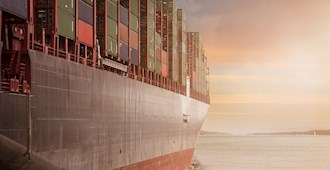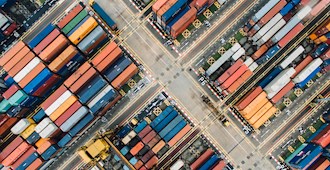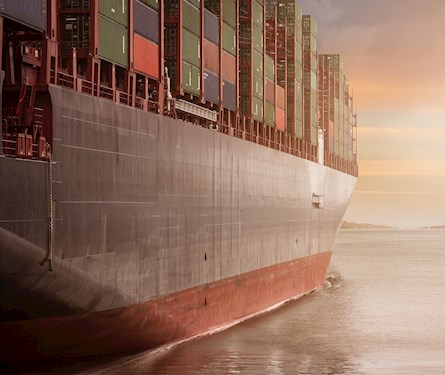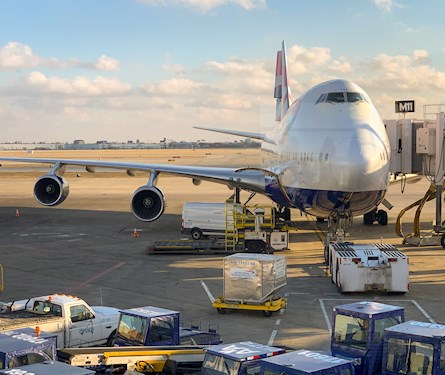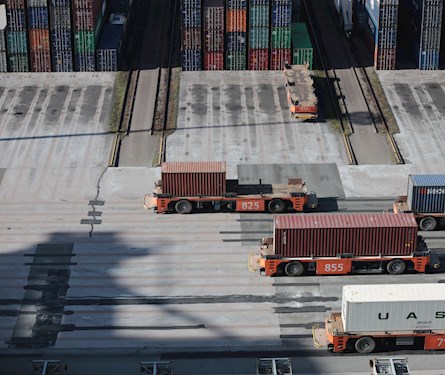Global Logistics
WLP offers a range of exclusive logistics services for members of the logistics loyalty programme. The World Logistics Passport is committed to helping businesses improve the flow of global trading. Collaborating with a network of global partners, the initiative aims to improve faster trade routes to help businesses secure the best deals for cost-effective transportation. WLP uses its expertise to ensure international trade logistics are streamlined and smooth for freight forwarders and traders. Read more about WLP’s logistics expertise and the logistics benefits WLP has to offer.
Logistics management is the act of transporting goods from the point of origin to the point of consumption. The success of any business or economy in global markets depends, in part, on how trade logistics solutions are integrated and applied to the supply chain.
What is the role of logistics in international trade?
Logistics play a crucial role in the modern global economy. Improved trade logistics infrastructure such as roads & highways, ports, railways, and airports are necessary for sustainable and balanced economic development.
The World Logistics Passport (WLP) helps countries' economies to grow and create jobs with premium logistics and trade services that increase the competitiveness of trade through reduced supply chain costs. It increases economic resilience by easing access to more markets, enhancing existing trading routes, and developing new ones. You can read more from our Chief Executive Mike Bhaskaran on how the WLP is helping to build resilient and efficient economies here.
What are the benefits of international logistics?
Ensuring that the international logistics management for a business or product is optimized increases the value of a business as its products become available to an increasing number of people. It also helps to reduce costs with the outsourcing of transportation and warehousing, providing faster delivery of goods.
Businesses that join the WLP as members typically see their trade volume grow by 2-3 percent over two years as they unlock logistics benefits that increase the efficiency of their supply chains, fast-track customs clearance processes, remove impediments to trade flow and reduce administrative costs for trade.
How does logistics contribute to economic growth?
A well-documented, positive relationship exists between transport, logistics, and economic growth. The correlation is particularly strong in developing economies where modern transportation and logistics contribute to sustainable economic growth. This itself indicates the undeniable role of logistics in an economy.
The OECD, for example, said in September 2021 that ASEAN economies could be better off by more than US$4.5 billion annually if regional governments encourage fair and transparent competition in the logistics sector.
The OECD’s research concluded that practical, low-cost policies recommended to improve the regulation of the ASEAN logistics industry would empower existing industry participants and encourage new entrants to identify and take advantage of fresh opportunities and the resulting market efficiencies. In turn, this would benefit businesses and consumers and ultimately accelerate growth and development across the bloc’s economies.
How does logistics affect supply chain management?
From a logistics perspective, the complex system that moves raw materials and finished products around the globe requires predictability and precision. As this article in Forbes Magazine explains, we sometimes see dislocations in the container market, shipping routes, ports, air cargo, trucking lines, railways and even warehouses. The result has created shortages of key manufacturing components, order backlogs, delivery delays and a spike in transportation costs and consumer prices.
Learn more about logistics with the World Logistics Passport
Whilst the WLP cannot address all these dislocations on its own, the trade initiative could not have been designed at a better time – it was established to unlock market access, increase cost savings and enhance border efficiencies. It is freeing economies to trade, connect and cooperate, and you can watch this video here to get a better sense of how it is doing so.
The WLP membership provides trade benefits to its members, creating an exclusive hub for freight forwarders and traders to connect and improve relationships between partners on a global scale.
Learn more about the World Logistics Passport and the initiative to reimagine logistics to improve the transportation of goods and services worldwide.



